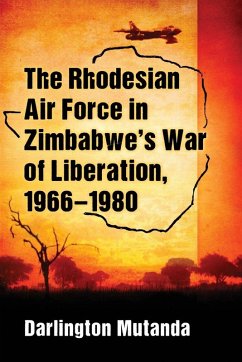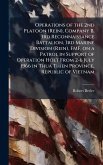This book evaluates the development of the Rhodesian Air Force during the Second Chimurenga or Bush War (1966-1980). Airpower in irregular conflict is effective at the tactical level because guerrilla warfare is not a purely military conflict. The Rhodesian Air Force was deployed in a war-winning versus a supporting role as a result of the shortage of manpower to deal with insurgency, and almost all units of the Rhodesian Security Forces depended on its tactical effectiveness. Technical challenges faced by the Air Force, combined with the rate of guerrilla infiltration and the misuse of airpower to bomb guerrilla bases in neighboring countries largely negated the success of airpower.
Bitte wählen Sie Ihr Anliegen aus.
Rechnungen
Retourenschein anfordern
Bestellstatus
Storno









